-
 Bitcoin
Bitcoin $81,713.6612
7.25% -
 Ethereum
Ethereum $1,590.9680
9.58% -
 Tether USDt
Tether USDt $0.9994
0.01% -
 XRP
XRP $1.9850
10.67% -
 BNB
BNB $576.0587
4.07% -
 USDC
USDC $1.0000
0.00% -
 Solana
Solana $113.7300
8.81% -
 Dogecoin
Dogecoin $0.1556
7.17% -
 TRON
TRON $0.2415
5.62% -
 Cardano
Cardano $0.6187
9.82% -
 UNUS SED LEO
UNUS SED LEO $9.4126
2.91% -
 Chainlink
Chainlink $12.3029
9.39% -
 Avalanche
Avalanche $17.9538
9.86% -
 Toncoin
Toncoin $2.9760
-0.26% -
 Stellar
Stellar $0.2331
6.97% -
 Hedera
Hedera $0.1699
13.76% -
 Shiba Inu
Shiba Inu $0.0...01187
9.44% -
 Sui
Sui $2.1263
9.63% -
 MANTRA
MANTRA $6.6607
7.28% -
 Bitcoin Cash
Bitcoin Cash $292.9636
8.52% -
 Litecoin
Litecoin $73.2688
4.21% -
 Polkadot
Polkadot $3.4728
1.93% -
 Dai
Dai $0.9999
0.01% -
 Bitget Token
Bitget Token $4.2757
5.61% -
 Ethena USDe
Ethena USDe $0.9988
0.02% -
 Hyperliquid
Hyperliquid $14.0411
14.28% -
 Pi
Pi $0.5913
5.64% -
 Monero
Monero $204.6332
5.30% -
 Uniswap
Uniswap $5.1398
7.17% -
 OKB
OKB $53.2668
4.09%
How to generate a Bitcoin wallet address for beginners
A Bitcoin wallet address is a public key for receiving Bitcoin, while the private key, which must be kept secret, allows spending; choose your wallet wisely for security.
Apr 03, 2025 at 10:49 pm
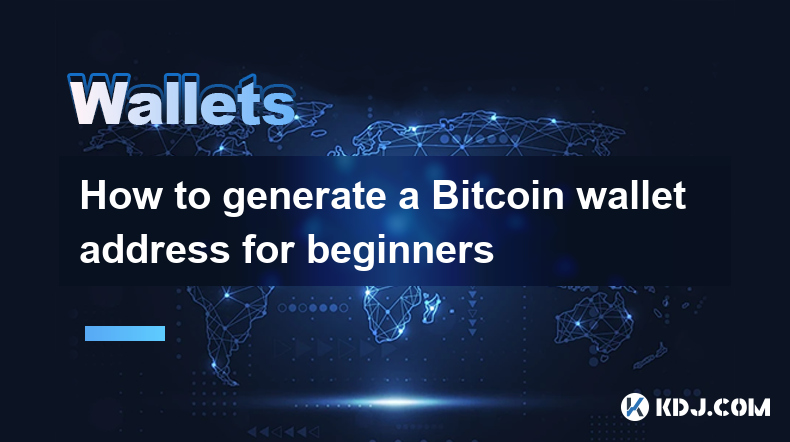
Understanding Bitcoin Wallet Addresses
Before diving into the process, it's crucial to understand what a Bitcoin wallet address is. It's essentially a unique identifier, like a bank account number, used to receive Bitcoin. Unlike a bank account, however, you don't "store" Bitcoin in a wallet address itself. The address is simply a public key that allows others to send you Bitcoin. Your private key, which you must keep absolutely secret, allows you to access and spend the Bitcoin sent to that address.
Choosing a Bitcoin Wallet
The first step is selecting a suitable Bitcoin wallet. Many options exist, each with its strengths and weaknesses. Popular choices include hardware wallets (like Ledger or Trezor), software wallets (like Electrum or Exodus), and web wallets (like Coinbase or Blockchain.com). Hardware wallets are generally considered the most secure, as they store your private keys offline. Software wallets offer more control but require careful security practices. Web wallets are convenient but sacrifice some security. The best choice depends on your technical skills and risk tolerance.
Generating a Bitcoin Wallet Address: Hardware Wallets
Generating an address with a hardware wallet is usually straightforward. The specific steps vary slightly depending on the brand and model. However, the general process involves connecting your hardware wallet to your computer, launching the wallet software, and then selecting the option to create a new wallet or receive Bitcoin. The wallet will then display your public Bitcoin address, which you can share with others to receive funds. Remember to always verify the address on the hardware wallet's screen before sharing it.
Generating a Bitcoin Wallet Address: Software Wallets
Software wallets, like Electrum or Exodus, also provide a user-friendly interface for generating addresses. After installing and launching the software, you'll typically find an option to create a new wallet or receive Bitcoin. The software will guide you through the process, often involving creating a strong password and securely storing your seed phrase (a list of words that acts as a backup for your wallet). Once set up, your Bitcoin address will be displayed. Never share your seed phrase with anyone.
Generating a Bitcoin Wallet Address: Web Wallets
Web wallets, such as Coinbase or Blockchain.com, generally handle address generation automatically. After creating an account and verifying your identity (if required), you'll be provided with a Bitcoin address. You can typically find this address in your wallet's dashboard. While convenient, remember that web wallets hold your private keys on their servers, making them potentially vulnerable to hacking. Choose a reputable web wallet and enable two-factor authentication whenever possible.
Understanding the Importance of Security
Regardless of the wallet type you choose, maintaining the security of your private keys is paramount. Here's a breakdown of crucial security measures:
- Never share your private keys or seed phrase with anyone.
- Use strong, unique passwords for your wallets.
- Enable two-factor authentication (2FA) whenever available.
- Keep your software updated to the latest versions.
- Be wary of phishing scams and malicious websites.
- Regularly back up your wallet and seed phrase securely.
What if I lose my private keys?
Losing your private keys essentially means losing access to your Bitcoin. There's no central authority to recover them for you. This is why securely storing your seed phrase is critically important.
Can I have multiple Bitcoin addresses?
Yes, you can have multiple Bitcoin addresses associated with a single wallet. Each address is independent and can receive Bitcoin separately. This can be useful for organizing your transactions or enhancing privacy. Most wallets allow you to generate new addresses easily.
Is it safe to use a web wallet?
While convenient, web wallets carry higher security risks than hardware or software wallets. Because your private keys are stored on their servers, they are vulnerable to hacking or theft. Only use reputable web wallets with strong security measures and consider using them only for small amounts of Bitcoin.
How do I choose the right Bitcoin wallet?
The best Bitcoin wallet depends on your technical skills, security needs, and comfort level. Hardware wallets offer the highest security but require a slightly steeper learning curve. Software wallets provide a good balance of security and control. Web wallets are the easiest to use but the least secure. Consider your priorities when making your choice.
What is a seed phrase and why is it important?
A seed phrase is a list of words that acts as a backup for your wallet. It contains all the information needed to recover your private keys if you lose access to your wallet. Never share your seed phrase with anyone and store it securely offline. Losing your seed phrase means losing your Bitcoin.
Can I generate a Bitcoin address without a wallet?
No, you cannot generate a valid Bitcoin address without a Bitcoin wallet. The wallet software is responsible for generating the cryptographic keys that create your public and private keys, leading to the creation of your unique Bitcoin address.
Disclaimer:info@kdj.com
The information provided is not trading advice. kdj.com does not assume any responsibility for any investments made based on the information provided in this article. Cryptocurrencies are highly volatile and it is highly recommended that you invest with caution after thorough research!
If you believe that the content used on this website infringes your copyright, please contact us immediately (info@kdj.com) and we will delete it promptly.
- Why You Should Listen to This Episode
- 2025-04-10 19:35:13
- Sonic (SUI) Co-Founder Andre Cronje Teases New Algorithmic Stablecoin Launching Within Five Weeks
- 2025-04-10 19:35:13
- President Donald Trump’s WLF wants people to ‘be DeFiant’, taking the financial freedom of decentralized finance to the masses
- 2025-04-10 19:30:13
- PCE price index report set for release on March 28, which could play a key role in shaping market sentiment.
- 2025-04-10 19:30:13
- Ethereum (ETH) Market Reels From Trump's New "Liberation Day" Tariffs
- 2025-04-10 19:25:13
- Don't Be Fooled by Wednesday's Market Turnaround
- 2025-04-10 19:25:13
Related knowledge
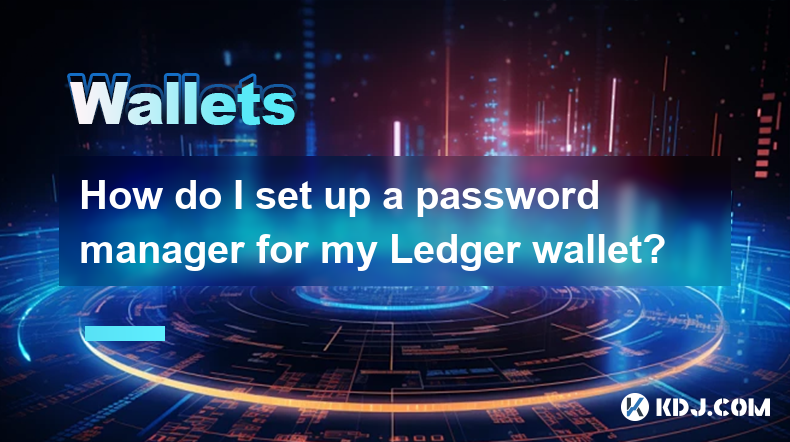
How do I set up a password manager for my Ledger wallet?
Apr 10,2025 at 11:50am
Setting up a password manager for your Ledger wallet is an essential step in enhancing the security of your cryptocurrency assets. A password manager helps you generate, retrieve, and keep track of complex passwords, ensuring that your Ledger wallet remains secure. In this article, we will guide you through the process of setting up a password manager s...
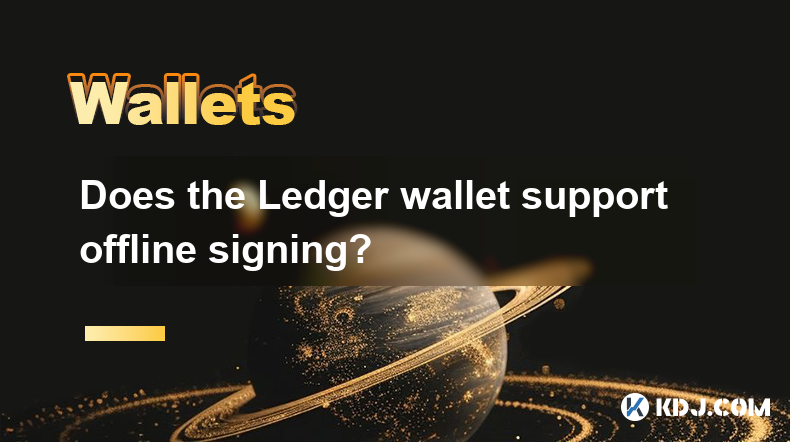
Does the Ledger wallet support offline signing?
Apr 09,2025 at 04:49am
Introduction to Ledger Wallet and Offline SigningThe Ledger wallet is a popular hardware wallet used by cryptocurrency enthusiasts to securely store their digital assets. One of the key features that users often inquire about is offline signing. Offline signing, also known as cold signing, is a security measure that allows users to sign transactions wit...
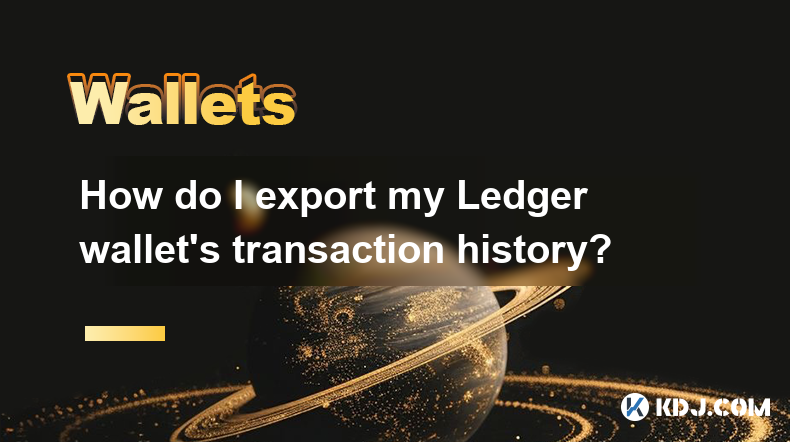
How do I export my Ledger wallet's transaction history?
Apr 10,2025 at 10:15am
Exporting your Ledger wallet's transaction history can be a crucial step for managing your cryptocurrency assets effectively. Whether you need this data for tax purposes, portfolio tracking, or simply for record-keeping, understanding how to access and export this information is essential. In this article, we will guide you through the process of export...
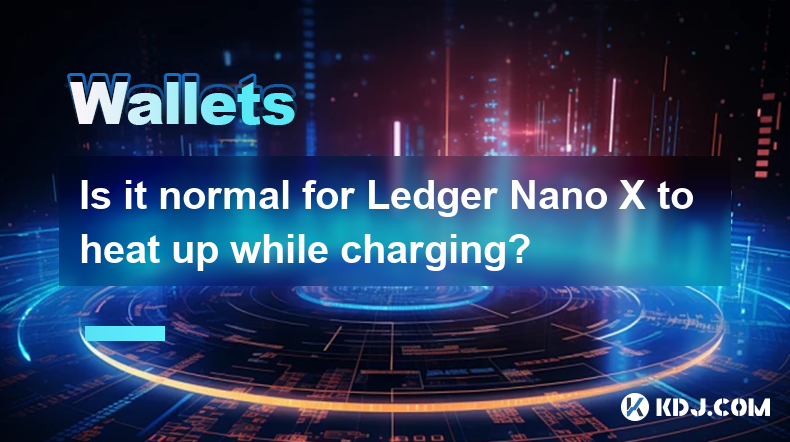
Is it normal for Ledger Nano X to heat up while charging?
Apr 09,2025 at 04:01pm
Is it normal for Ledger Nano X to heat up while charging? When using a hardware wallet like the Ledger Nano X, it's common for users to have concerns about the device's behavior, especially when it comes to heat generation during charging. This article will delve into the reasons behind the Ledger Nano X heating up while charging, whether it's normal, a...
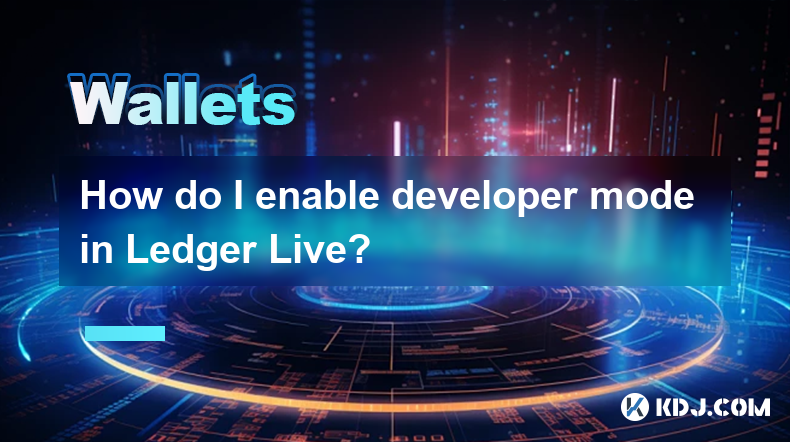
How do I enable developer mode in Ledger Live?
Apr 10,2025 at 05:49am
Enabling developer mode in Ledger Live can be a useful feature for advanced users who want to access experimental features or test new functionalities. This guide will walk you through the process of enabling developer mode in Ledger Live, ensuring you understand each step thoroughly. Understanding Developer ModeDeveloper mode in Ledger Live allows user...
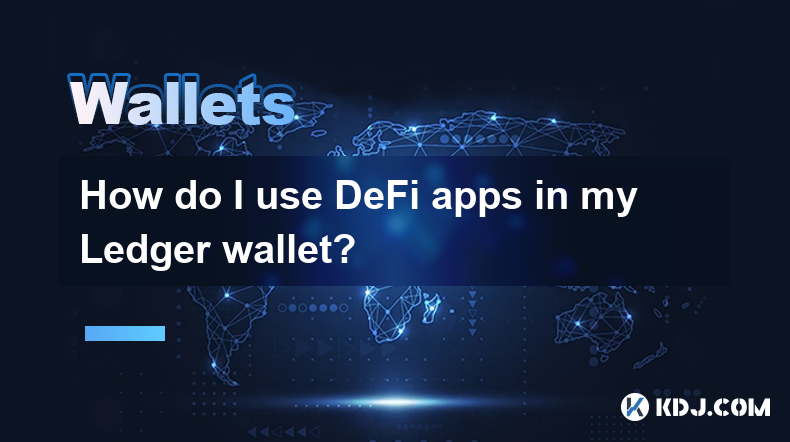
How do I use DeFi apps in my Ledger wallet?
Apr 10,2025 at 11:28am
Using DeFi apps with your Ledger wallet allows you to interact with decentralized finance platforms securely. This guide will walk you through the process of setting up and using DeFi apps with your Ledger device, ensuring your assets remain safe while you explore the world of DeFi. Setting Up Your Ledger Wallet for DeFiBefore you can use DeFi apps with...

How do I set up a password manager for my Ledger wallet?
Apr 10,2025 at 11:50am
Setting up a password manager for your Ledger wallet is an essential step in enhancing the security of your cryptocurrency assets. A password manager helps you generate, retrieve, and keep track of complex passwords, ensuring that your Ledger wallet remains secure. In this article, we will guide you through the process of setting up a password manager s...

Does the Ledger wallet support offline signing?
Apr 09,2025 at 04:49am
Introduction to Ledger Wallet and Offline SigningThe Ledger wallet is a popular hardware wallet used by cryptocurrency enthusiasts to securely store their digital assets. One of the key features that users often inquire about is offline signing. Offline signing, also known as cold signing, is a security measure that allows users to sign transactions wit...

How do I export my Ledger wallet's transaction history?
Apr 10,2025 at 10:15am
Exporting your Ledger wallet's transaction history can be a crucial step for managing your cryptocurrency assets effectively. Whether you need this data for tax purposes, portfolio tracking, or simply for record-keeping, understanding how to access and export this information is essential. In this article, we will guide you through the process of export...

Is it normal for Ledger Nano X to heat up while charging?
Apr 09,2025 at 04:01pm
Is it normal for Ledger Nano X to heat up while charging? When using a hardware wallet like the Ledger Nano X, it's common for users to have concerns about the device's behavior, especially when it comes to heat generation during charging. This article will delve into the reasons behind the Ledger Nano X heating up while charging, whether it's normal, a...

How do I enable developer mode in Ledger Live?
Apr 10,2025 at 05:49am
Enabling developer mode in Ledger Live can be a useful feature for advanced users who want to access experimental features or test new functionalities. This guide will walk you through the process of enabling developer mode in Ledger Live, ensuring you understand each step thoroughly. Understanding Developer ModeDeveloper mode in Ledger Live allows user...

How do I use DeFi apps in my Ledger wallet?
Apr 10,2025 at 11:28am
Using DeFi apps with your Ledger wallet allows you to interact with decentralized finance platforms securely. This guide will walk you through the process of setting up and using DeFi apps with your Ledger device, ensuring your assets remain safe while you explore the world of DeFi. Setting Up Your Ledger Wallet for DeFiBefore you can use DeFi apps with...
See all articles





















































































